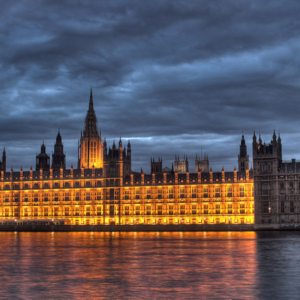Source >> International Viewpoint
In this context, the Tunisian presidency has even developed theories of the “great replacement” to justify this treatment, and has followed in the footsteps of the Tunisian National Party, a small but extremely racist (and anti-Semitic) party.
BORDER GUARD
A month ago, (French Interior Minister) Darmanin came to officialise an agreement turning Tunisia into a border guard, following in the footsteps of Italy, which had made the same request in January. For a few million euros, the Tunisian government has undertaken to discourage people from leaving for Europe from its shores, with the tacit agreement that as long as the flow of migrants decreases, France will be less strict about human rights.
The situation deteriorated sharply in the port town of Sfax – which, because of the configuration of the tides, is the one most conducive to crossing – where, following a fatal altercation with a migrant, real pogroms took place over several nights in front of a police force that was passive at best. Several dozen injured people filled the hospital in Sfax. Some of the people forcibly evicted from their homes and robbed included people who were “in order” as far as Tunisian immigration was concerned.
DEPORTATIONS TO LIBYA
The authorities have chartered buses to forcibly take migrants fleeing the city to the Libyan border. To date, there are around 1,200 of them, including at least 29 children and three pregnant women, and their situation is unknown. They have to get by without water or food in the desert, and organisations and journalists are forbidden to intervene. On the Libyan side, they have been threatened and have had to turn back. Their situation is dramatic. Several people have already died of dehydration. Those who did not get on the buses are wandering in the suburbs of Sfax, with nowhere to shelter and no humanitarian aid other than individual solidarity.
Fanning the flames of the structural negrophobia that exists in the Maghreb by acting as a safeguard against European racist policies while developing a vague anti-imperialism façade: this is the recipe of the Tunisian state. The massive scale of the deportations nevertheless represents a break with the past. There is an urgent need to develop solidarity with organisations supporting migrants in Tunisia, and above all for us to demand an end to the Fortress Europe policy. No one is illegal and all immigrants are welcome.
Translated by International Viewpoint from l’Anticapitaliste.
Art (53) Book Review (121) Books (114) Capitalism (65) China (79) Climate Emergency (98) Conservative Government (90) Conservative Party (45) COVID-19 (44) Economics (40) EcoSocialism (55) Elections (83) Europe (46) Fascism (56) Film (49) Film Review (68) France (70) Gaza (59) Imperialism (98) Israel (121) Italy (46) Keir Starmer (52) Labour Party (111) Long Read (42) Marxism (48) Palestine (167) pandemic (78) Protest (152) Russia (340) Solidarity (141) Statement (48) Trade Unionism (141) Ukraine (345) United States of America (132) War (368)
Latest Articles
- Italy Left fails to win its referendumsDave Kellaway reports from Italy on the referendums promoted by the main trade union confederation and the official left of centre opposition parties to limit some of the more repressive anti-trade union laws and to improve the citizenship process for immigrants
- Italy votes on removing anti‑working class lawsItalians vote in 5 important referendums this weekend. We publish here the statement put out by our comrades in Sinistra Anticapitalista. Introduced with notes from Dave Kellaway
- Fighting for trans rights in workplacesThe fightback against trans oppression must be taken to our work places. Simon Hannah examines what is happening in the trade union movement.
- Newham Rejects Cuts to Disability BenefitsDisabled people are under yet another attack, now from a Labour government. Susan Pashkoff reports back from a local DPAC action in Newham.
- Fight Labour’s austerityDave Kellaway looks at the political reaction to Labour’s austerity






